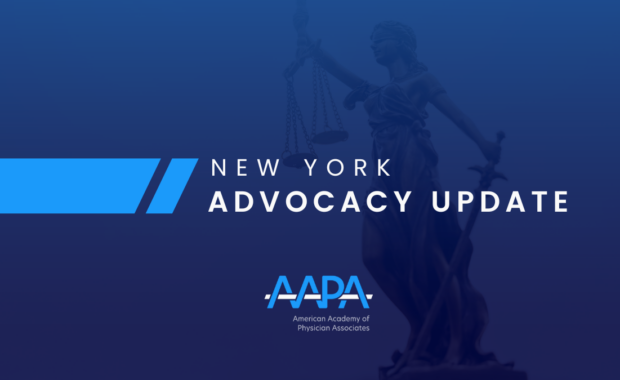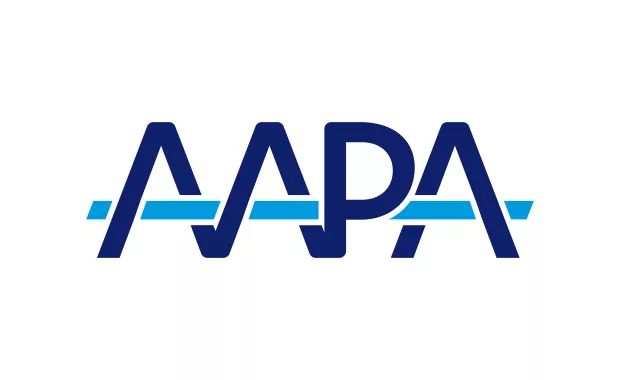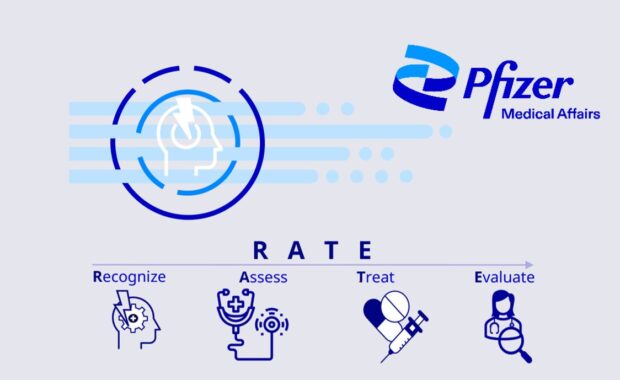A Day in the Life of a PA in Genetics
An Inside Look at a Rare Specialty with Rare Disorders
August 18, 2023
By Wesley G. Patterson, PhD(c), MSPA, PA-C
From Summer Intern to a PA in Genetics
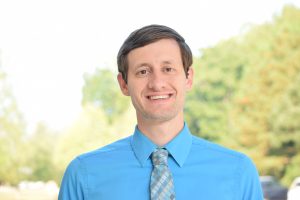
My genetics path started while I was an undergrad at Clemson University (go Tigers!). One day as I was walking through a building at Clemson, I saw a posting for a paid summer internship in the research division of the Greenwood Genetic Center (GGC). I was accepted for the internship, and during the summer between junior and senior year, I worked on a research panel analyzing genes related to X-linked intellectual disability. This internship sparked my now deep love for the field of medical genetics; however, at this time, I was unsure what I wanted to do with my life.
During my senior year, a friend introduced me to the PA profession. I was intrigued to learn someone could practice medicine without attending medical school. Upon graduating from Clemson, I took an EMT basic course and began shadowing physicians and PAs to gain healthcare experience. I was amazed at what all the PAs could do − work autonomously, carry their own patient panels, switch between specialties, and much more!
After graduating, I ran into a former GGC colleague. She asked about my career plans, and the next thing I knew, I received a phone call from GGC’s Molecular Diagnostic Laboratory asking if I wanted to apply for a job. I went back to GGC, but this time as a technologist performing genetic tests that I now order today. After two years as a technologist, I headed to PA school at Radford University Carilion, formerly Jefferson College of Health Sciences.
[Receive unparalleled career services and support – join or renew your membership today]
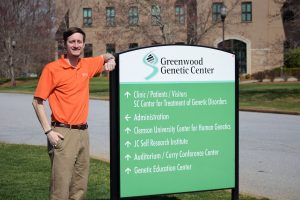
During PA school, I set up an elective rotation in medical genetics back at GGC and loved it! I knew that this was where I wanted my PA career to go. Unfortunately, at that time, a PA working in genetics was unheard of. Upon graduating from PA school, I started my career in family medicine. After two and a half years, I received a life-changing phone call that GGC was interested in hiring their first PA. I was in awe. Over the next few months, we discussed training, scope of practice, and clinical duties. After three years in family medicine, I jumped at the chance to return “home” to the GGC, where I imagine I will retire one day.
A Typical Day
I have the typical 8 a.m.-5 p.m. work schedule, Monday through Friday. I see four to six patients per day, four days a week (Monday-Thursday). My job involves evaluating and treating individuals with suspected or known genetic disorders. My patient population consists of mostly children with developmental delay, intellectual disability, autism spectrum disorder, connective tissue disorders, hearing loss, epilepsy, hypotonia, birth defects, inborn errors of metabolism, or other unexplained medical issues. I see patients on an outpatient basis and also perform NICU and PICU consults. Occasionally, I take part in specialty clinics, such as the orthopaedic genetics clinic at Shriners Hospital for Children or at an adult facility for individuals with intellectual disability.
GGC offers both in-person and telemedicine appointments. Office visits typically last over an hour and involve obtaining a comprehensive pregnancy, perinatal, medical, developmental, and family history and performing a thorough physical exam, including a dysmorphology exam. Once the patient is evaluated, I order the appropriate genetic testing, if indicated. Many of our clinical activities occur outside of the actual office visit, such as reviewing all available medical records, analyzing genetic testing results, searching the literature to help with interpreting some results, and following up with patients and their families. In genetics, we also work closely and coordinate care with other pediatric subspecialties, such as cardiology, endocrinology, and neurology. I split day-call with the geneticist in our office on a 2-3 day per week rotation. I take night-call once every 10 weeks on a rotation with other GGC geneticists throughout the state. When we are on call, we are on call for the whole state of South Carolina.
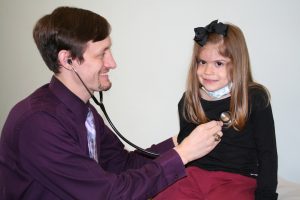
On Fridays, we have a weekly center-wide case conference where all GGC providers take turns presenting interesting cases seen during the week or asking the group for advice about a patient or diagnosis. Attendees include PAs, geneticists, genetic counselors, dieticians, laboratory directors, researchers, a developmental pediatrician, and a psychologist. The rest of the day may be filled with other meetings or time used to catch up on work from the previous week (charting, calling out results, coordinating care, etc.).
Advocacy and Education for PAs and Genetics
I love advocacy and education, and I am very passionate about genetics and the PA profession. I decided to combine these two passions by pursuing a PhD in Healthcare Genetics from Clemson University. My dissertation work focuses on genetics and genomic education for PAs, and I have several manuscripts in the works for publication. One of my goals is to educate all PA students and practicing PAs on how to incorporate genetics and genomics into their career and specialty. I have helped develop genetics lecture series for four PA programs (soon to be seven) and serve as a clinical preceptor for several PA programs. I have also lectured at the state and national level to educate the PA community about genetics. We have many projects in the works at GGC to educate PAs that we hope to launch soon!
I encourage PAs interested in genetics to check out the National Institutes of Health’s All of Us Research Program, a longitudinal effort to gather health data from one million or more people to build one of the most diverse health information resources in history. The program aims to advance precision medicine research – which we use in genetics to ensure patients have the appropriate therapies, monitoring, and specialty care they need – by collecting genetic, environmental, and lifestyle data from participants of different backgrounds who reflect the diversity of the U.S. By getting involved, participants will not only help diversify the research base, but can also learn more about themselves through the program’s return of genetic results. Plus, PA researchers can check out the publicly available data on the All of Us Research Hub.
I am a founding member of the Society of PAs in Genetics and Genomics and serve as treasurer and web designer. I am also involved with advocacy through many other organizations, including other PA, genetics, and genetics education organizations.
Genetics is a close-knit community. Currently, there are only 18 PAs practicing in the field of medical genetics (two at GGC), and we keep in close contact with each other. We would love to grow our community. If you are interested in a career in genetics, please feel free to reach out!
Wesley G. Patterson, PhD(c), MSPA, PA-C, practices medical genetics at the Greenwood Genetic Center in Greenwood, South Carolina. He will be giving a presentation at AAPA 2022 titled “The Genetics Evaluation: Who to Refer and What to Expect.” He can be reached at [email protected].
Editor’s Note: This article was originally published on March 22, 2022
You May Also Like
Two PAs Use Genetics and Precision Medicine to Provide Answers and Develop Plans for Patients
PAs: Get Involved in Genetics to Help Patients
Thank you for reading AAPA’s News Central
You have 2 articles left this month. Create a free account to read more stories, or become a member for more access to exclusive benefits! Already have an account? Log in.
